#sheetmusicscoredownloadpartiturapartitionspartitinoten楽譜망할음악ноты
Text
Irving Berlin - White Christmas (from the film Holiday Inn) lyrics and piano
Irving Berlin - White Christmas (from the film Holiday Inn) lyrics and piano (sheet music)
https://dai.ly/x8g6gw1
JAZZ
Irving Berlin

Irving Berlin's Jewish family immigrated from Russia to the United States in 1891. His father was a rabbi who got a job certifying meat under Kosher Law. After the death of his father in 1896, Irving had to find work to survive; he was employed as a newsboy and also performed on the street to get money.
The harsh reality of having to work even menial jobs to avoid starvation left a deep mark on Berlin's valuation of money. When he was working as a singing waiter at Pelham's Café in Chinatown, Berlin was asked by the owner to write an original song for the café, because a rival business had its own song published. «Marie from Sunny Italy» was the result, being released soon.
Although he only earned 37 cents, it opened the doors to a new career and a new name: Israel Baline was mistakenly printed as "I. Berlin" in the score. Many of her early songs, including "Sadie Salome (Go Home)," "That Mesmerizing Mendelssohn Tune," and "Oh How That German Could Love," achieved modest success both in sheet music, on recording, and on the vaudeville stage. , or as interpolations in various shows; but it was "Alexander's Ragtime Band," written in 1911, that catapulted him into one of Tin Pan Alley's biggest stars.
Following the success of "Alexander's", Berlin was rumored to be writing a ragtime opera, yet he produced his first full-length work for the musical stage, "Watch Your Step" (1914), starring Irene and Vernon Castle, the first musical comedy in making penetrating use of syncopated rhythms.
A similar show titled "Stop! Look! Listen!» followed that in 1915. In 1917, during World War II, he entered the US Army and staged a musical revue entitled Yip Yip Yaphank while at Camp Upton in Yaphank, New York. Billed as "a military mess cooked up by the boys from Camp Upton", the cast of the show was made up of 350 members of the armed forces.
The revue was a patriotic tribute to the US military, and Berlin composed a song titled "God Bless America" for the show, though he ultimately made no use of it. When it was performed years later, it became so popular that it was suggested that it could become the National Anthem, that is, a kind of national song.
It has remained until today as one of the most successful songs and one of the best known throughout the United States. Particularly remembered is the interpretation that it was made after the terrorist attack of September 11, 2001, when members of Congress sang it on the steps of the Capitol. Some songs from Yaphank's magazine were later included in the 1943 film "This Is the Army" which also featured other Berlin songs, both the film's title song and a cover of "God Bless America" by Kater Smith.
After the war, Berlin built his own theater, the Music Box, as a venue for annual revues featuring his latest songs; the first such magazine was "The Music Box Revue of 1921". The theater is still in use, occasionally. Although most of his works for the Broadway stage took the form of revues — collections of songs with no common theme — he wrote a few book shows.
The Cocoanuts (1925) was a comedy, with a cast that included, among others, the Marx Brothers. Face the Music (1932) was a political satire to a book by Moss Hart, and Louisiana Purchase (1940) was a satire of a southern politician, obviously based on the exploits of Huey Long.
The show featured a succession of hit songs, including "Easter Parade," "Heat Wave" (presented as the weather forecast), "Harlem on My Mind," and what is perhaps their most powerful ballad, "Supper Time," a tormented song about racial bigotry, with an unusual weight in a musical revue and which was sung by Ethel Waters, a magnificent singer of color, in a heartbreaking interpretation.
During World War II, after receiving permission from General George Marshall, Berlin organized a magazine made up of soldiers in the spirit of Yip Yip Yaphank. The result, This Is the Army, opened on July 4, 1942, with a cast of over 300 soldiers, and remained on the stage for three years, first on Broadway, then on a tour of the United States, and then on the Foreign.
Irving Berlin's most successful Broadway musical was: Annie Get Your Gun (1946), produced by Richard Rodgers and Oscar Hammerstein II. Loosely based on the life of shooter Annie Oakley, the music and lyrics were written by Berlin, with a book by Herbert Fields and his sister Dorothy Fields. Berlin had been hired after the death of Jerome Kern. At first, he turned down the offer, stating that he knew nothing about hillbilly music, but the show ended up running 1,147 performances.
Annie Get Your Gun is considered the best musical in Berlin, not only because of the number of musical hits it contains, but also because its songs successfully combine the description of the characters with the help of the development of the story.
In 1927, one of Berlin's songs, "Blue Skies", a hit since 1926, was performed in the first talking picture in cinema history: The Jazz Singer, sung by Al Jolson. Top Hat (1935) was the first in a series of Berlin-sponsored film musicals to star popular and attractive performers (such as Bing Crosby, Fred Astaire, Judy Garland, and Ginger Rogers), with romantic storylines and a soundtrack to base of his new and old songs.
Irving Berlin did not compose in a traditional way; he used mainly the black keys of a piano. He was a composer of the music for such films as Mark Sandrich's Top Hat (1935), Stuart Heisler's Blue Sky (1946), and Easter Parade (1948). Among his best-known songs are "Everybody's Doin 'It", "There's No Business Like Show Business", "White Christmas" and "Easter Parade".
In 1968, he received the Grammy for a life dedicated to music. He was the author of more than fifteen hundred songs, becoming one of the most important composers in the United States. Although he never learned to read music beyond an elementary level, he wrote over 3,000 songs, many of which left an indelible mark on American music and culture. He produced 17 films and 21 Broadway shows, in addition to his individual songs.
List of songs written by Irving Berlin
Read the full article
8 notes
·
View notes
Text
Essential Keith Jarrett (41 Videos)
Essential Keith Jarrett (35 videos of LIVE concerts, performances and transcriptions)
Best Sheet Music download from our Library.
Please, subscribe to our Library. Thank you!
Keith Jarret Sheet Music Transcriptions (6 videos)
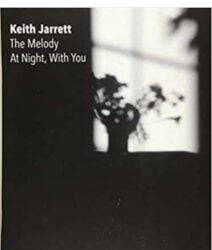
Essential Keith Jarrett (35 videos of LIVE concerts, performances and transcriptions)
https://www.youtube.com/embed?listType=playlist&list=PLhtXB4thVU-eoR7IYvFcaTqK57OQ7PA9E&layout=gallery
Keith Jarret Sheet Music Transcriptions (6 videos)
https://www.youtube.com/embed?listType=playlist&list=PLkA6PBhDkDutvOdqJ9knogZL_g2TqmvUP&layout=gallery
Read the full article
#jazz#jazzscores#keithjarrett#sheetmusicdownload#sheetmusicscoredownloadpartiturapartitionspartitinoten楽譜망할음악ноты
2 notes
·
View notes
Text
Philip Glass: les 100 musiciens les plus inspirants de tous les temps
Philip Glass: les 100 musiciens les plus inspirants de tous les temps
Please, subscribe to our Library. Thank you!
Téléchargement des meilleures partitions dans notre bibliothèque.
Philip Glass - Metamorphosis | complét
METAMORPHOSIS ONE - Philip Glass (with sheet music)
Philip Glass bio
Philip Glass: les 100 musiciens les plus inspirants de tous les temps
Philip Glass (né le 31 janvier 1937 à Baltimore, Maryland, États-Unis) est un compositeur américain de musique instrumentale, vocale et lyrique innovante, qui a diversement utilisé des éléments minimalistes, atonaux et non occidentaux, dans son travail.
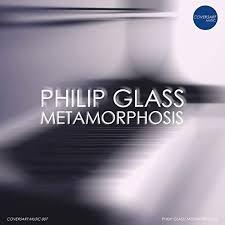
Philip Glass a étudié la flûte dans son enfance et s'est inscrit à l'âge de 15 ans à l'Université de Chicago, où il a étudié les mathématiques et la philosophie et a obtenu son diplôme en 1956. Son intérêt pour la musique atonale l'a amené à étudier la composition à la Juilliard School of Music (M.S., 1962 ) à New York, puis à Paris pour étudier avec Nadia Boulanger. Sa rencontre là-bas avec le sitariste indien Ravi Shankar a influencé de manière décisive le style de composition de Glass, et il a temporairement abandonné des qualités formelles traditionnelles telles que l'harmonie,
tempo et mélodie dans sa musique.
Au lieu de cela, il a commencé à créer des pièces d'ensemble dans un style monotone et répétitif, ces œuvres consistaient en une série de rythmes syncopés ingénieusement contractés ou prolongés dans une structure diatonique stable. Une telle musique minimaliste, jouée par un petit ensemble utilisant un clavier et des instruments à vent amplifiés électroniquement, a valu à Glass un public restreint, mais enthousiaste à New York à la fin des années 1960.
L'opéra Einstein on the Beach (1976) de Philip Glass, composé en collaboration avec Robert Wilson, lui a valu un succès plus large ; ce travail a montré un regain d'intérêt pour les éléments harmoniques occidentaux classiques, bien que son intérêt pour les changements rythmiques et mélodiques surprenants soit resté le moteur de l'œuvre élément le plus dramatique. L'opéra Satyagraha (1980) de Glass était une représentation plus authentiquement « opératique » des incidents de la jeunesse de Mohandas K. Gandhi.
Dans cette œuvre, la répétition bourdonnante de séquences d'accords symétriques atteint un pouvoir obsédant et hypnotique bien accordé aux thèmes religio-spirituels du livret, adapté de l'écriture hindoue la Bhagavadgītā.
L'opéra The Voyage (1992) a eu des critiques mitigées, mais le fait qu'il ait été commandé par le New York Metropolitan Opera (pour commémorer le 500e anniversaire de l'arrivée de Christophe Colomb dans les Amériques) a confirmé l'acceptation croissante de Glass par la musique classique.
établissement.

Philip Glass - Metamorphosis | complét
https://www.youtube.com/watch?v=M73x3O7dhmg&t=7s
"Metamorphosis One" – 00:00 "Metamorphosis Two" – 06:54 "Metamorphosis Three" – 13:59 "Metamorphosis Four" – 19:09 "Metamorphosis Five" – 26:29
'Metamorphosis' (1988), fait référence à la nouvelle de 1915 La Métamorphose de Franz Kafka et s'en inspire. Alors que toutes les pièces ont été écrites en 1988, certaines ont été écrites pour une mise en scène de Metamorphosis, tandis que d'autres étaient pour un film documentaire intitulé The Thin Blue Line réalisé par Errol Morris. 'Metamorphosis One' est joué dans un épisode de Battlestar Galactica par Kara 'Starbuck' Thrace.
Dans le récit, son père a composé et interprété la pièce. Il est également joué dans la finale de la série Person of Interest, Return 0. 'Metamorphosis Two' a constitué la base de l'un des principaux thèmes musicaux du film The Hours. C'est aussi la chanson que le groupe de rock américain Pearl Jam utilise comme musique d'introduction aux concerts.
METAMORPHOSIS ONE - Philip Glass (with sheet music)
https://vimeo.com/474699463
Philip Glass bio
Il est né en 1937 et a grandi à Baltimore. Il a étudié à l'Université de Chicago, à la Juilliard School et à Aspen avec Darius Milhaud. Se trouvant insatisfait d'une grande partie de ce qui passait alors pour la musique moderne, il s'installe en Europe, où il étudie avec la légendaire pédagogue Nadia Boulanger (qui a également enseigné à Aaron Copland, Virgil Thomson et Quincy Jones) et travaille en étroite collaboration avec le virtuose du sitar et compositeur Ravi. Shankar. Il est retourné à New York en 1967 et a formé le Philip Glass Ensemble - sept musiciens jouant des claviers et une variété de bois, amplifiés et alimentés par une table de mixage.
Le nouveau style musical que Glass développait a finalement été surnommé «minimalisme». Glass lui-même n'a jamais aimé le terme et a préféré parler de lui comme d'un compositeur de « musique aux structures répétitives ». Une grande partie de ses premiers travaux était basée sur la réitération prolongée de fragments mélodiques brefs et élégants qui se tissaient dans et hors d'une tapisserie sonore. Ou, pour le dire autrement, il plongeait l'auditeur dans une sorte de météo sonore qui se tord, tourne, entoure, se développe.
Il n'y a rien de « minimaliste » dans sa production. Au cours des 25 dernières années, Glass a composé plus de vingt-cinq opéras, petits et grands ; douze symphonies, treize concertos; des bandes sonores de films allant de nouvelles partitions pour les classiques stylisés de Jean Cocteau au documentaire d'Errol Morris sur l'ancien secrétaire à la Défense Robert McNamara; neuf quatuors à cordes ; un nombre croissant d'œuvres pour piano solo et orgue. Il a collaboré avec Paul Simon, Linda Ronstadt, Yo-Yo Ma et Doris Lessing, entre autres. Il présente des conférences, des ateliers et des performances de clavier solo dans le monde entier et continue de se produire régulièrement avec le Philip Glass Ensemble.
Read the full article
0 notes
Text
John Mayall - The Laws Must Change (Music Scene, 1970)
John Mayall - The Laws Must Change (Music Scene, 1970) Sheet Music
https://www.youtube.com/watch?v=UzmqxTBaNyI
Singer, harmonica player, guitarist, organist, songwriter, and bandleader John Mayall was born Nov. 29 1933 in Macclesfield, Cheshire, England.
A major force in the blues world since he formed the first version of the Bluesbreakers in 1963, Mayall has utilized everyone from Eric Clapton to Blue Mitchell in his projects.

Read the full article
0 notes
Text
100 Progressive Studies, Op.139 – Carl Czerny (No. 16 to 20) sheet music, Noten
100 Progressive Studies, Op.139 – Carl Czerny (No. 16 to 20) sheet music, Noten
https://dai.ly/x8fvc30

Read the full article
0 notes
Text
Symphonie Nr. 6 in h-Moll, Op. 74 (Pathetisch) – Tschaikowsky (Thema – Leichtes Klaviersolo)
Symphonie Nr. 6 in h-Moll, Op. 74 (Pathetisch) – Tschaikowsky (Thema – Leichtes Klaviersolo)
https://vimeo.com/755624167
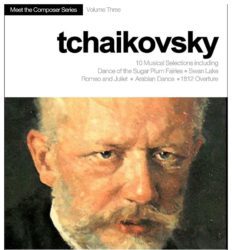
Kurze Biographie von P.I. Tschaikowsky
Pjotr Iljitsch Tschaikowsky wurde 1840 geboren und starb 1893. Er ist ein russischer Komponist und der Sohn seiner künstlerischen Epoche, der Romantik. Er beschäftigte sich mit vielen Genres: Sinfonien, Opern, Balletten, Instrumentalmusik, Kammermusik und Liederzyklen.
Unter diesen Werken ragen zweifellos seine Ballette heraus. Er schuf zahlreiche Werke, die heute zum Repertoire gehören: Schwanensee, Dornröschen, Der Nussknacker. Im symphonischen Aspekt stehen seine Sinfonien, insbesondere die letzten drei, von der vierten bis zur sechsten.
In der Konzertmusik heben wir sein erstes Klavierkonzert oder sein Violinkonzert hervor. Zu seinen Opern gehört natürlich Eugen Onegin.
PI. Tschaikowsky wurde in eine bürgerliche Familie hineingeboren. Schon in jungen Jahren zeigte er ein frühreifes Talent für Musik. Seine Eltern erkannten dies und meldeten ihn im Alter von 5 Jahren zum Klavierunterricht an.
Drei Jahre später konnte er besser vom Blatt lesen als sein eigener Lehrer. Später rieten ihm seine Eltern jedoch davon ab, als sie sahen, dass sein Sohn eine Musikkarriere einschlagen würde. Als es an der Zeit war zu studieren, drängten sie Tschaikowsky, Jura zu studieren, mit der Absicht, dass er Beamter werden würde, was der bürgerliche Wunsch der Familie war.
Im Alter von 14 Jahren stirbt seine Mutter an Cholera, eine Tatsache, die bei dem jungen Privatdetektiv ein Trauma hervorruft. Tschaikowsky. Trotz seines Jurastudiums aufgrund der elterlichen Verpflichtung bleibt Tschaikowsky mit der Musikwelt seiner Heimatstadt St. Petersburg in Kontakt.
Nach seinem Abschluss begann er im Alter von 19 Jahren, Musiktheoriekurse bei Professoren der Russischen Musikgesellschaft wie Zaremba oder Rubinstein zu besuchen. Kurz darauf beschloss er, seine Karriere als Beamter aufzugeben und sich ganz der Musik zu widmen.
Ab 1867, im Alter von 27 Jahren, begann er regelmäßig zu komponieren, seine Werke wurden prompt uraufgeführt und in das Repertoire aufgenommen. Allerdings bescherte ihm sein Ruhm Eifersuchtsprobleme mit anderen Musikern und Komponisten.
Darüber hinaus hat P.I. Tschaikowsky begann, seine Homosexualität in Frage zu stellen. In einer Gesellschaft, in der Homosexualität eindeutig stigmatisiert war, war es für einen Komponisten seines Ruhms nicht einfach, sie zu verinnerlichen. Zu dieser Zeit beschließt Tschaikowsky, einen Studenten seiner Komposition zu heiraten. Die Ehe scheitert völlig und der Komponist gerät in eine tiefe Depression. Er beschließt, Moskau zu verlassen und beginnt damit seine jahrelange Pilgerreise.
Dank der finanziellen Unterstützung einer Mäzenin, Nadezhda von Meck, reist er unter anderem durch Europa, Deutschland und Frankreich sowie durch das ländliche Russland.
1884 reiste er müde vom Reisen und kehrte nach Russland zurück, wo er bis zu seinem Tod im Jahr 1893 blieb. Zu dieser Zeit genoss er trotz seiner emotionalen Probleme (vor allem aufgrund seiner Sexualität) große öffentliche und kritische Anerkennung.
Tschaikowskys Musik
Tschaikowskys Musik repräsentiert Russlands Verbindung zur westlichen Tradition der Romantik. Zur Zeit Tschaikowskys etablierte Russland seine Identität als Land. Eine Gruppe von Komponisten, die sogenannte Fünfergruppe, befürwortete die Schaffung authentisch russischer Musik, also Musik ohne Bezug zur klassischen europäischen Tradition, ohne Bezug zu Komponisten wie Beethoven, Brahms oder Wagner.
Diese Gruppe wollte Musik, die eher aus den Quellen der russischen Folklore als aus der tonal-harmonischen Musik des Westens schöpfte. Tschaikowsky identifiziert sich nicht mit dieser Position und tatsächlich ist sein Verhältnis zu dieser Gruppe zwiespältig, geprägt von Ablehnung und Anerkennung zugleich. Während seiner Pilgerjahre kam Tschaikowsky mit der Musik von Brahms, Beethoven und anderen Komponisten seiner Zeit in Kontakt.
Er kennt diese Musik aus erster Hand und integriert sie in seinen Stil. Es stellt den am stärksten verwestlichten Zweig der romantischen russischen Musik dar. Das soll nicht heißen, dass Tschaikowsky russische Musik überhaupt ablehnt; vielmehr verwendet er viel Volksmusik. Denken Sie daran, dass er einen Teil seiner Pilgerjahre im ländlichen Russland verbringt.
Aus technischerer Sicht kann man sagen, dass Tschaikowsky ein großer Experimentator war. Einige Autoren sahen in ihm einen Komponisten, der alle Aspekte der Komposition außer der Form beherrschte. Aber das ist nicht wahr. Er führte formale Innovationen ein, die in vielen seiner Werke zu sehen sind, darunter auch in der Sechsten Symphonie.
PI. Tschaikowsky verwendete unregelmäßige und ungewöhnliche Taktarten (siehe den zweiten Satz der Sexte im 5/4-Takt); er verwendete das Metrum auf sehr ausdrucksstarke Weise; seine Art der Harmonisierung ist kühn und zu seiner Zeit innovativ; sein Sinn für Orchesterfarben ist äußerst originell und inspirierte andere Komponisten der nächsten Generation (denken Sie an Strawinsky und seine frühen Ballette); seine melodischen Fähigkeiten sind erstaunlich (siehe melodische Analyse unten).
Die Entstehung der Symphonie „Pathétique“
Die Sechste Symphonie entstand Anfang 1893. Es ist bekannt, dass Tschaikowsky einen ersten Entwurf zerrissen hatte, sich aber geschworen hatte, „dass ich dieses Mal durch Willenskraft fertig werden würde“. Im Oktober 1893 liefert er die erste Fassung ab und beginnt mit der Vorbereitung der Fassung für zwei Klaviere.
Der Titel, den Tschaikowsky Pathétique vorschlägt, legt nahe, dass hinter der Symphonie ein Programm steckt. Der Komponist hält jedoch das Geheimnis dieses Programms aufrecht.
Es handelt sich eindeutig um eine Symphonie, die mehrere Lesungen zulässt. Einige Autoren betrachten es als Ventil für ihre unterdrückte Homosexualität. Offenbar hatte Tschaikowsky eine platonische Beziehung zu niemand geringerem als seinem Neffen Bob, dem Widmungsträger der Symphonie. Die Sinnlichkeit, die die Symphonie ausstrahlt, wurde als Sublimierung dieser verbotenen Liebe interpretiert. Es ist niemandem entgangen, dass es in der Symphonie um das Thema Schicksal geht (hier bedeutet das Wort pathétique Emotion und nicht Spott).
Die Symphonie scheint die Vorstellung zu fördern, dass wir das Schicksal irgendwie, vielleicht im Rahmen unseres Einfallsreichtums, herausfordern oder sogar darauf wetten können. Wir schwanken zwischen einem klaren Verständnis unseres Schicksals, wie in den Verzweiflungsthemen des vierten Satzes, und blindem Optimismus, wie im Marsch des dritten Satzes, bis hin zu tiefem Mitgefühl für unsere Lage, wie im Thema des Trostes.
Die Uraufführung der Symphonie fand nicht die Resonanz, die Tschaikowsky erwartet hatte. Es herrschte eine Art Ratlosigkeit zwischen der Öffentlichkeit und den Kritikern. Sie verstanden seine Bedeutung nicht, vielleicht waren seine formalen Neuerungen (eine Symphonie, die in einem klagenden Adagio endet?) übertrieben.
Wenige Tage später stirbt Tschaikowsky an Cholera, weil er ungekochtes Wasser getrunken hat. Es gibt Spekulationen darüber, ob er Selbstmord begangen hat oder sein Leben auf einen Trunk mit dem Schicksal gesetzt hat. Als die Symphonie das nächste Mal gespielt wurde, war sie ein voller Erfolg. Es scheint, dass das Publikum die Symphonie nach seinem Tod verstanden hat.
Read the full article
0 notes
Text
Nicholas Britell (b. 1980) Succession (Piano Solo arr. sheet music)
Nicholas Britell - Succession HBO TV Series (Piano Solo arr.) sheet music
Nicholas Britell (born 1980)
Best Sheet Music download from our Library.
Please, subscribe to our Library. Thank you!FilmographyAs performer
As composer
Television
Nicholas Britell - Succession HBO TV Series (Piano Solo arr.) sheet music
https://rumble.com/embed/v2vggwi/?pub=14hjof
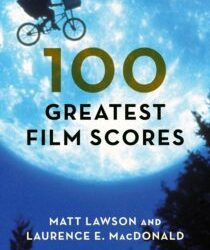
Nicholas Britell (born 1980)
Nicholas Britell (born October 17, 1980) is an American film and television composer. He has received numerous accolades including a Emmy Award as well as nominations for three Academy Awards, and a Grammy Award.
He has received Academy Award nominations for Best Original Score for Barry Jenkins' Moonlight (2016) and If Beale Street Could Talk (2018), and Adam McKay's Don't Look Up (2021). He also scored McKay's The Big Short (2015), and Vice (2018). He is also known for scoring Battle of the Sexes (2017), Cruella (2021), and She Said (2022).
The HBO original series Succession (2018–2023) marked Britell's entry into television. Britell scored all four seasons, earning the Emmy Award for Outstanding Original Main Title Theme Music in 2019.
His score for the second and third season in Succession each earned Primetime Emmy Award for Outstanding Music Composition for a Series nominations in 2020 and 2022.
His score for The Underground Railroad was nominated for the Primetime Emmy Award for Outstanding Music Composition for a Limited or Anthology Series, Movie or Special in 2021.
His works, as described by Soraya McDonald of Film Comment, "seem to organically straddle accessibility and sophistication in a way that goes beyond the typical programming of a big-city pops orchestra…That might have something to do with the fact that Britell has long had one foot in the world of hip-hop and another in the world of classical music."

Nicholas Britell is a Steinway Artist and a Creative Associate of the Juilliard School.
In December 2018, it was announced that Britell would be a part of Esa-Pekka Salonen's newly formed creative collective "brain trust" as Salonen takes the reins as music director of the San Francisco Symphony.
Filmography
As performer
Year Title Director
2008 Eve Natalie Portman
As composer
Film
Year Title Director
2008 New York, I Love You Natalie Portman
2012 Haiti: Where Did the Money Go Michele Mitchell
Gimme the Loot Adam Leon
2013 12 Years a Slave (additional music by) Steve McQueen
2015 The Seventh Fire Jack Pettibone Riccobono
A Tale of Love and Darkness Natalie Portman
The Big Short Adam McKay
2016 Free State of Jones Gary Ross
Moonlight Barry Jenkins
Tramps Adam Leon
2017 Battle of the Sexes Jonathan Dayton and Valerie Faris
2018 If Beale Street Could Talk Barry Jenkins
Vice Adam McKay
2019 The King David Michôd
2021 Cruella Craig Gillespie
Italian Studies Adam Leon
Don't Look Up Adam McKay
2022 Carmen Benjamin Millepied
She Said Maria Schrader
Television
Year Title Notes
2018–2023 Succession 29 episodes
2021 The Underground Railroad 10 episodes
Ziwe Theme music by
2022 Winning Time: The Rise of the Lakers Dynasty 10 episodes
Andor 12 episodes
Read the full article
0 notes
Text
Scott Joplin - Bethena - A Concert Waltz (piano sheet music, Noten, partition, partitura, spartito)
Scott Joplin - Bethena - A Concert Waltz (piano sheet music, Noten, partition, partitura, spartito)
https://www.youtube.com/watch?v=Q8818SVte-c
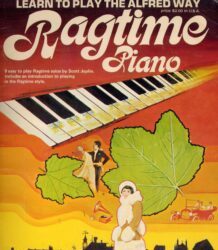
Read the full article
0 notes
Text
Milonga del Angel, Astor Piazzolla, solo piano arrangement
Milonga del Angel, Astor Piazzolla, solo piano arrangement
https://rumble.com/embed/v2uqjt2/?pub=14hjof
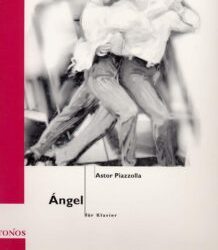
Read the full article
#partitura#partituramilongapiazzolla#sheetmusicdownload#sheetmusicscoredownloadpartiturapartitionspartitinoten楽譜망할음악ноты
0 notes
Text
Jazz Riffs for Piano - Modal Jazz
Jazz Riffs for Piano - Modal Jazz (useful jazz phrases for soloing) sheet music, Noten, partition
https://youtu.be/vbJU0XfaTRI

Read the full article
0 notes
Text
Stranger Things Main Theme - Piano solo arr. (sheet music, Noten, film music)
Stranger Things Main Theme - Piano solo arr. (sheet music, Noten, partition, partitura, spartito) Film Music
https://youtu.be/ZY0B6rtbqa8
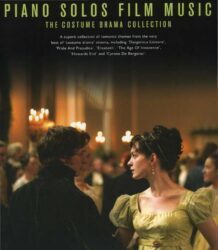
Read the full article
0 notes
Text
Blue Moon (Jazz Play Along Aebersold Vol. 70 "Killer Joe" Easy impro sheet music, Noten, partition)
Blue Moon (Jazz Play Along Aebersold Vol. 70 "Killer Joe" Easy impro sheet music, Noten, partition)
https://www.youtube.com/watch?v=cqIOkCrqwPo

Read the full article
0 notes
Text
Lee Ritenour & Dave Grusin Quartet - Live in Concert 2018
Lee Ritenour & Dave Grusin Quartet - Live in Concert 2018
https://www.youtube.com/watch?v=SZkjvetUOUU
Lee Ritenour - guitar Dave Grusin - piano, keyboards Melvin Lee Davis - bass Wes Ritenour - drums
Track List:
0:00:38 - The village 0:06:38 - Gabriela (Tom Jobim) 0:18:00 - Wes Bound 0:57:50 - Night Rithms 1:05:15 - Lay It Down

Read the full article
0 notes
Text
Oscar Peterson & André Previn (1974)
Oscar Peterson & André Previn (1974)
https://rumble.com/embed/v2orrms/?pub=14hjof
Oscar Peterson and Andre Previn look at some of the styles and personalities involved in the development of piano jazz. 'It's years since I made jazz records,' says Previn, ' so don't expect a text-book history. I have always been Oscar's most ardent fan so tonight is very much a personal programme.'
Did you know that Previn had a jazz background and that Peterson was originally a classically trained musician?
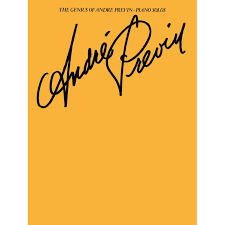
Read the full article
0 notes
Text
Shostakovich - Prelude and Fugue in D Major Op 87 No 5 (Noten, sheet music, partition, partitura)
Shostakovich - Prelude and Fugue in D Major Op 87 No 5 (Noten, sheet music, partition, partitura)
https://rumble.com/embed/v2oqk02/?pub=14hjof

Read the full article
0 notes
Text
Brahms - Ein Deutsches Requiem IV Wie lieblich sind deine Wohnungen piano & SATB Noten, sheet music
Brahms - Ein Deutsches Requiem IV Wie lieblich sind deine Wohnungen piano & SATB Noten, sheet music
https://youtu.be/0ipq5q3VK1Y

Read the full article
0 notes